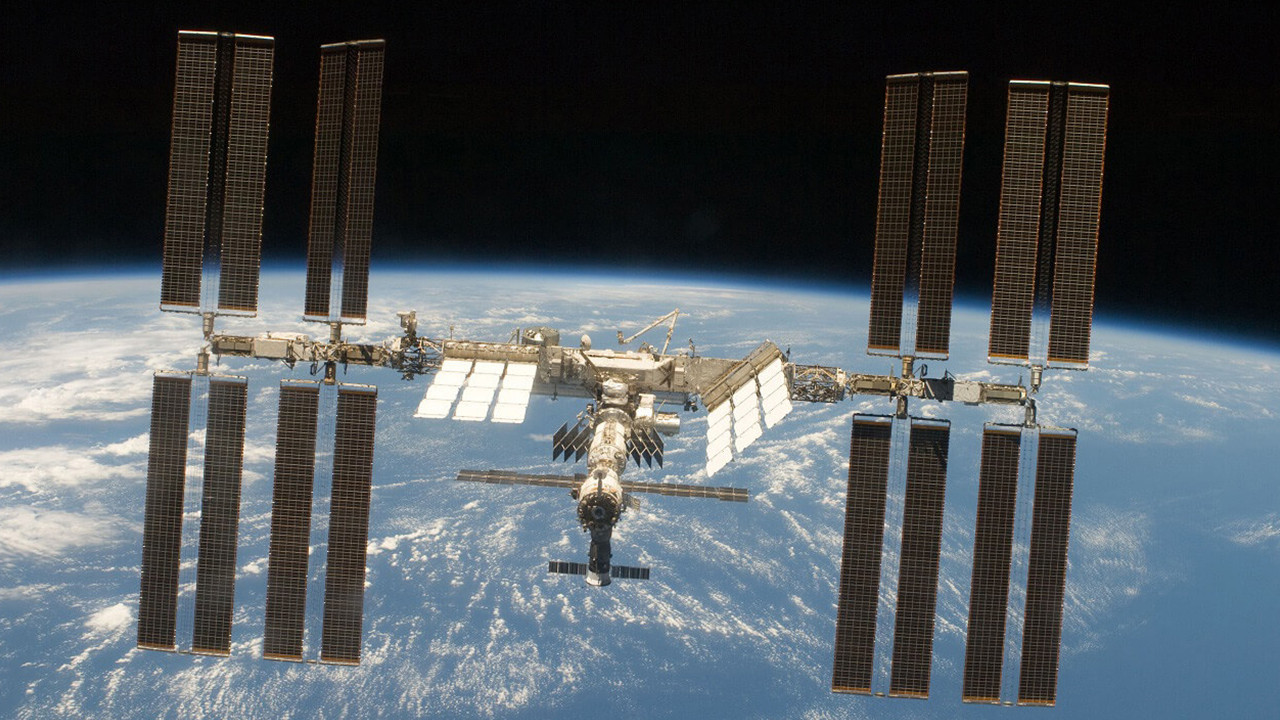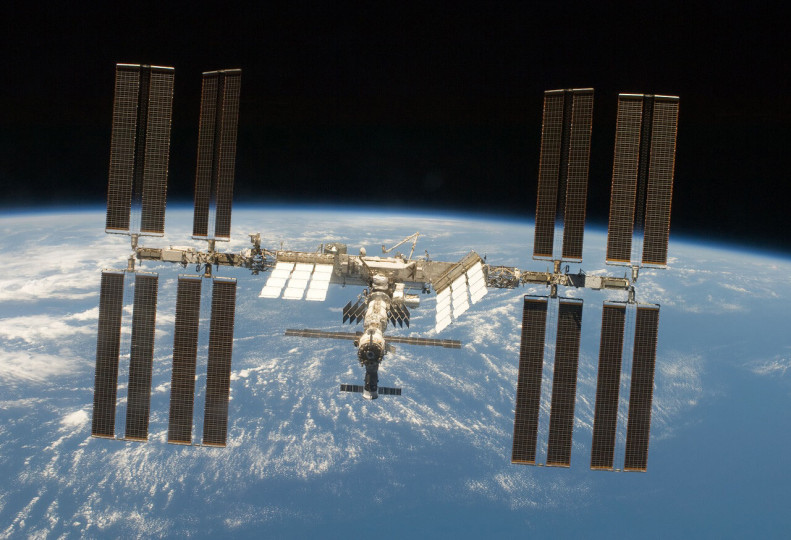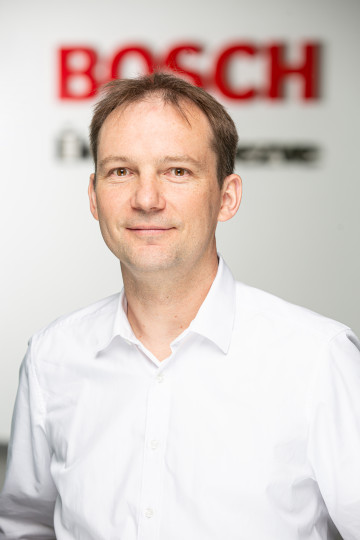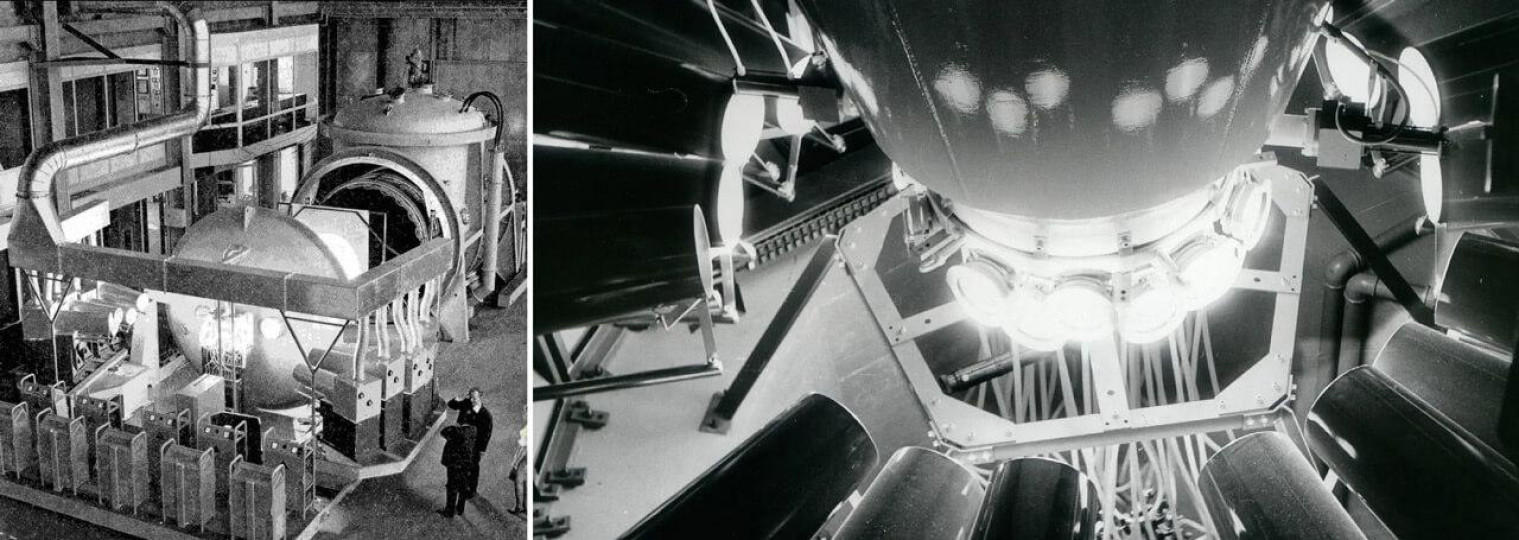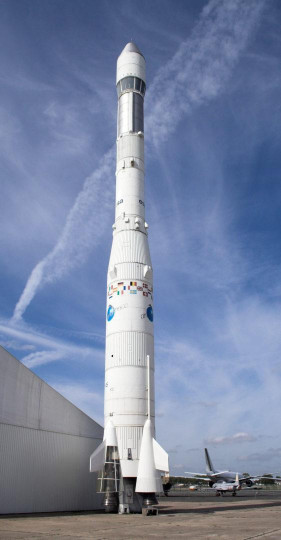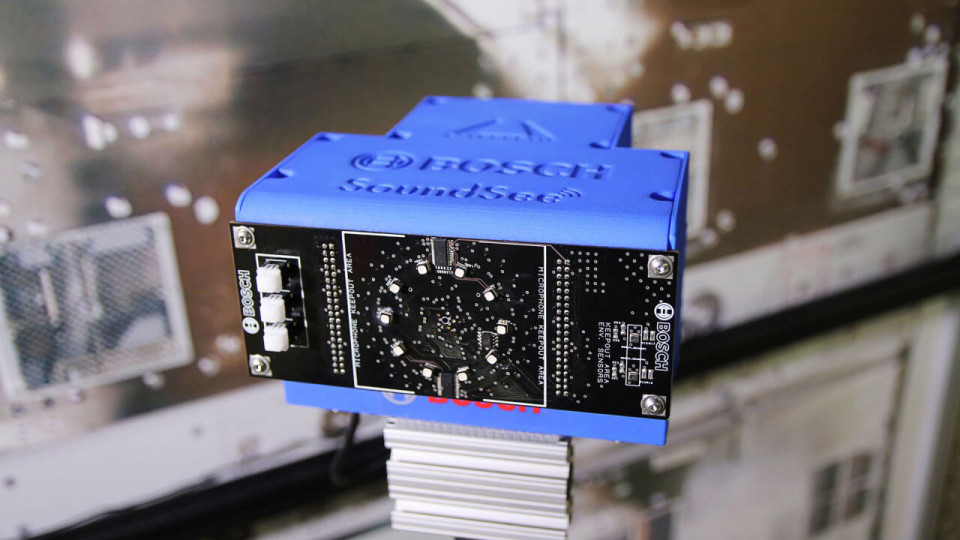What can the space industry learn from innovative vehicle technologies? How can safety and efficiency be reconciled? Will engineers still be needed or will artificial intelligence provide a solution for everything? These were the questions that Dr. Ákos Csilling, a research associate of Bosch Group in Hungary, sought to answer in his presentation at the 21st Simonyi Conference, Hungary's largest technology event organized by university students.
From automotive technology to the space industry
Although the Bosch Group, known for its innovative solutions and advanced vehicle technologies, does not build spacecrafts, it has gained extensive experience over the past decades that can contribute to the engineering developments that will underpin the space industry of the future. In his presentation “Can AI design spacecraft?”, Dr. Ákos Csilling, a research associate of Bosch Group in Hungary, introduced future engineers to the development of complex systems, solutions to increase safety and reliability, and the potential of artificial intelligence and machine learning. The presentation took place on March 19 at the 21st Simonyi Conference at the Budapest University of Technology and Economics (BME), in front of an audience of future engineers.
Bosch: almost 60 years in space
Today, the Bosch Group, a supplier of future technologies and innovative solutions, focuses its development and manufacturing activities primarily on electromobility, self-driving cars, generative AI-based software development and IoT solutions. At the same time, the group has also made its mark in the space sector, having been involved in space technology development for almost six decades.
The Bosch Group launched its first space project in 1966 under the name “Bosch Sun”, where they created solar simulators for space simulation chambers. Later, Bosch researchers studied interplanetary electromagnetic fields and were involved in the design of the cooling system for the European Ariane 1 launch vehicle. In the 1980s, Bosch's satellite stabilization system, which allowed signals to be precisely directed towards the reception area on Earth, won international acclaim. In a space shuttle mission, two Bosch spark plugs provided the power for a geophysical experiment. And during NASA's Phoenix mission to Mars, a special drill from a Bosch subsidiary played an important role in taking soil samples. And since a few years ago, artificial intelligence also plays a role: Bosch developed a sensor system called SoundSee together with the US company Astrobotic. This solution analyses the noise emitted by space station equipment and uses AI to filter out devices that are faulty or nearing a failure, thus increasing the safety of space missions and the reliability of the equipment used.
You can't do it alone – not even AI can
As with its space-related research and development programs, Bosch's innovative AI-based products and services are all about reliability and safety. These fundamental requirements are reflected in all phases of the overall development process at Bosch.
Artificial intelligence is increasingly used in technology development, as machine learning makes processes more reliable and efficient. The question may arise: can AI take over the work of developers and engineers in the future? “For the time being, basic innovation processes cannot be replaced by machine intelligence, so for example, AI alone cannot design a spacecraft or successfully carry out complex developments. Progress requires an innovative, forward-looking mindset. When people get stuck in tasks, they change concepts, look for new solutions, research and develop technology. Without new ideas, you cannot create new things,” said Dr. Ákos Csilling at the 21st Simonyi Conference.
Bosch and BME together train the engineers of the future
The Bosch Group in Hungary has been cooperating with the Budapest University of Technology and Economics for almost 15 years. As part of its long-term strategy, the company considers the universities in Hungary as important professional partners and indispensable players in Bosch's unique innovation ecosystem. As a leading supplier of technology, Bosch considers it its mission to strengthen the link between higher education and industrial research and development, and to train the next generation of engineers. Thanks to the partnership between Bosch and BME, university students can gain theoretical knowledge and insights into real development and production processes, and even participate in actual industrial development projects, including in the field of artificial intelligence. “Even as an undergraduate, students should learn how to solve problems in innovative and creative ways, and the necessary flexibility. This is how they can not only maintain the value of their knowledge in today's fast-changing technological environment, but also continuously improve it. In this way, AI will not take away their work, but will help them and make their work more efficient,” said Dr Csilling.
Zita Hella Varga
Phone: +36 70 667-6374
Bosch has been present in Hungary since 1898 with its products. After its re-establishment as a regional trading company in 1991, Bosch has grown into one of Hungary’s largest foreign industrial employers with currently eight subsidiaries. In fiscal 2022 it had total net sales of 2.255 billion forints and consolidated sales to third parties on the Hungarian market of 314 billion forints. The Bosch Group in Hungary employs more than 18,300 associates (as of December 31, 2022). In addition to its manufacturing, commercial and development business, Bosch has a network of sales and service operations that covers the entire country.
The Bosch Group is a leading global supplier of technology and services. It employs roughly 428,000 associates worldwide (as of December 31, 2023). According to preliminary figures, the company generated sales of 91.6 billion euros in 2023. Its operations are divided into four business sectors: Mobility, Industrial Technology, Consumer Goods, and Energy and Building Technology. As a leading IoT provider, Bosch offers innovative solutions for smart homes, Industry 4.0, and connected mobility. Bosch is pursuing a vision of mobility that is sustainable, safe, and exciting. It uses its expertise in sensor technology, software, and services, as well as its own IoT cloud, to offer its customers connected, cross-domain solutions from a single source. The Bosch Group’s strategic objective is to facilitate connected living with products and solutions that either contain artificial intelligence (AI) or have been developed or manufactured with its help. Bosch improves quality of life worldwide with products and services that are innovative and spark enthusiasm. In short, Bosch creates technology that is “Invented for life.” The Bosch Group comprises Robert Bosch GmbH and its roughly 470 subsidiary and regional companies in over 60 countries. Including sales and service partners, Bosch’s global manufacturing, engineering, and sales network covers nearly every country in the world. The basis for the company’s future growth is its innovative strength. At 136 locations across the globe, Bosch employs some 90,000 associates in research and development, of which roughly 48,000 are software engineers.
Additional information is available online at www.bosch.hu, iot.boschblog.hu, www.bosch.com, www.iot.bosch.com, www.bosch-press.com, www.twitter.com/BoschPresse

